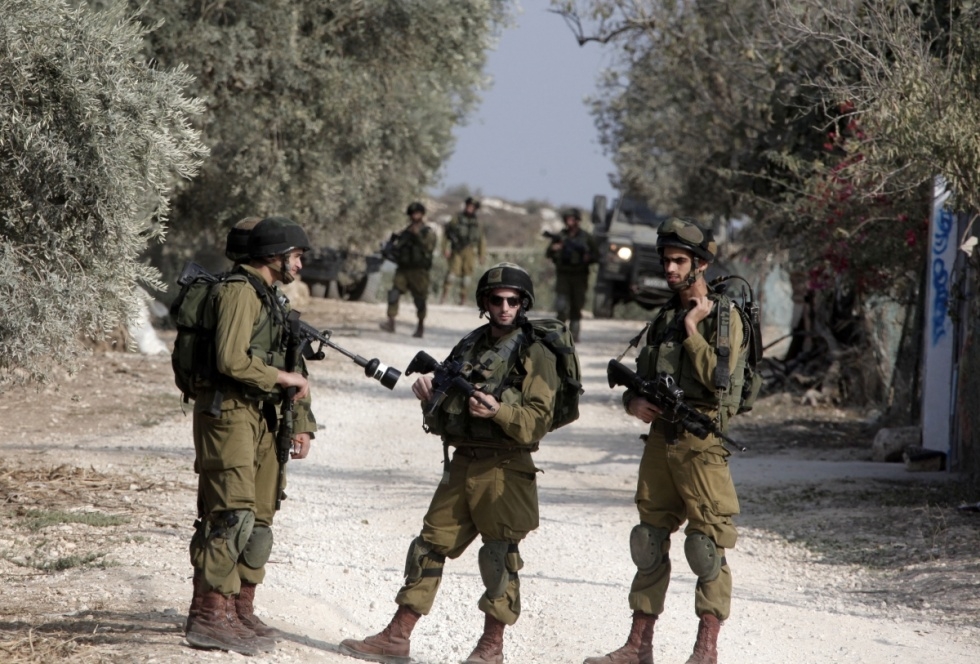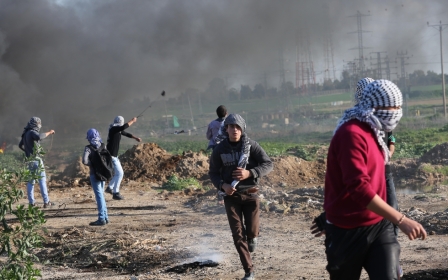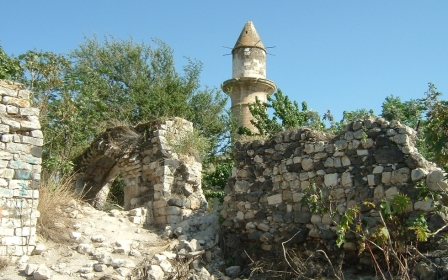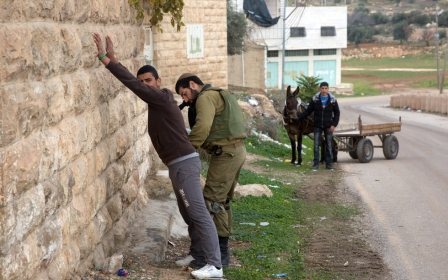A Palestinian broke into an Israeli settlement in the southern West Bank on Sunday and stabbed a woman to death in her home, the Israeli army said, the first such incident in a months-long wave of violence.
"A terrorist murdered a civilian in her home in the community of Otniel," south of Hebron, a military statement said.
"The attacker broke into the house and stabbed the victim to death. Forces are in pursuit of the terrorist."
Palestinians in neighbouring villages said a manhunt was under way, with army helicopters in the sky and heavy movement of military vehicles.
Further details were unclear on the stabbing, the latest in more than three months of such attacks, but the first in the current wave of violence to occur inside a settlement home.
Hours earlier, Israeli border guards arrested a Palestinian woman at the entrance to the Kiryat Arbaa settlement in Hebron, reportedly after finding a knife in her bag, Maan News Agency reported.
Sunday's killing brought the death toll since last October to 24 Israelis and 155 Palestinians.
Many of the slain Palestinians were allegedly attackers, while others were shot dead by Israeli forces during protests and clashes.
There are about 550,000 Israelis living in Jewish-only settlements in the West Bank and East Jerusalem, in contravention of international law.
Hebron - where several hundred Jewish settlers, heavily guarded by the Israeli military, live in the city among about 200,000 Palestinians - has been a flashpoint in the recent wave of Palestinian knife, gun and car-ramming attacks.
Israeli forces have often responded to alleged attacks or attempted attacks by shooting Palestinian suspects dead. Amnesty International has condemned what it has called unnecessary use of force by Israeli soldiers in responding to alleged attacks.
Amnesty has documented "incidents in which Palestinians were shot dead by Israeli forces when they posed no imminent threat to life, in what appear to have been extrajudicial executions," the group said in late October, at the end of the first month of increased tensions.
The Israeli government has come under internal pressure over the continued stabbings, and Sunday's killing was likely to further boost tensions.
Most of the stabbings have occurred in public places, including checkpoints, junctions and entrances to Jerusalem's Old City. They have rarely been fatal.
Many of the Palestinian attackers have been young people, including teenagers. A number of them have attempted attacks with kitchen knives in what some analysts have described as virtual suicide missions.
Some analysts say the attacks have been in part driven by frustration with a lack of progress in peace efforts, Israel's continuing occupation of the West Bank and their own fractured Palestinian leadership.
While attacks have become less frequent in recent weeks, they have continued, defying increased Israeli security measures.
International efforts to end the violence have failed.
US Secretary of State John Kerry warned in November after holding separate talks with Israeli Prime Minister Benjamin Netanyahu and Palestinian President Mahmud Abbas that the conflict was at a "pivotal point" and could worsen beyond repair unless both sides make rapid compromises.
New MEE newsletter: Jerusalem Dispatch
Sign up to get the latest insights and analysis on
Israel-Palestine, alongside Turkey Unpacked and other MEE newsletters





